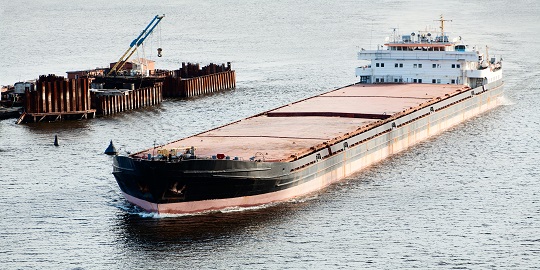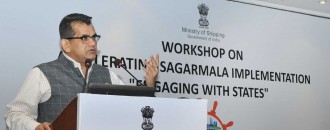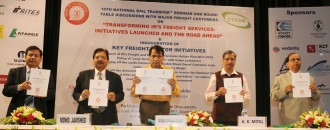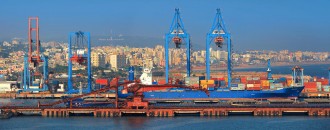
Forays into coastal shipping will boost logistics
Satyapal Menon | The Dollar Business
Government of India’s propensity for tapping the potential of inland waterways is bound to open a sea of opportunities for both the shipping and logistics industry. Inexplicably, despite the country’s extensive coastline of over 7000Km, coastal shipping had remained dormant all these years. According to definition, Coastal vessel means a vessel of Indian registry with exclusive Indian crew, engaged in carriage by sea of cargo or passengers, from one Indian port to another port or place in India, and/or any other vessel having specified period of license for engagement in coastal trade issued by the Director General of Shipping. India continues to cling on to archaic Cabotage law which mandated that only Indian vessels had the right of way to transport Cargo within the country’s coastline. Foreign ships were allowed to operate between the Ports within the country only if there were no India ships available. Cabotage which had all the makings and markings of ‘protectionism’, has been in force, despite indigenous shipping industry being in state of stupor and inadequacy, incapable to capitalize on the immense vistas that this segment had on offer. One of the reasons attributed to lack of growth of the Indian shipping industry, ironically, is the very law which was supposed to protect it. The shipping industry points to the provision for allowing foreign vessels to operate in the absence of Indian vessels as causing uncertainty and creating an impediment to its own prospects. This confusion according to them, have kept away many prospective entrepreneurs from venturing into the shipping segment. This argument is so full of holes that it fails to hold water. The law states that foreign vessels will be given permission, only if Indian vessels are not available. So question of competition does not arise at all. Moreover, this provision was extended to only Vallarpadum and a few other Ports. The big question here is why is transport of cargo via the inland waterways a mere 5 to 6%, compared to road and rail movement which together account for around 87-90%. If foreign vessels had entered the fray - which would have anyway been the case only if there was lack of Indian vessels – can anyone explain this near stagnancy? This points to only one reason – there have not been many foreign takers and less of Indian takers. India enjoys the advantage of a network of inland waterways with connectivity to the sea and the Ports. Pointing out the potential of coastal shipping, a shipping ministry study indicates that coastal cargo volume can be increased by about 20 million tonnes a year on select routes across cargo categories such as cement, fertilizers, foodgrain, steel, marble, salt, sugar and cotton. The scope for coastal shipment of automobile is estimated at 100,000 cars a year. There are lot of other advantages in coastal shipping like hassle-free and faster movement of cargo, apart from the low costs involved in this mode of transport. Mohammed Ameen, Promoter, Hasan Hajee and Company, a stevedoring and Logistics firm feels that there should be committed efforts to promote coastal shipping. “Not much thought have gone into exploring the potential of coastal shipping. Kerala is perhaps the only state which is practically deploying initiatives to develop this mode of transport. And, if this clicks, major issues with the roads will be solved. No of trucks plying the roads will be reduced. And our waterways will be used in a much better way than what it is now,” he told The Dollar Business. Coastal shipping in India, at present is in a trough, but intentions of the government to navigate this mode of transport towards a high tide is palpable, which, if it happens would witness it coasting on a crest.
June 03, 2015 | 10:13 pm IST.






 to success.
to success.